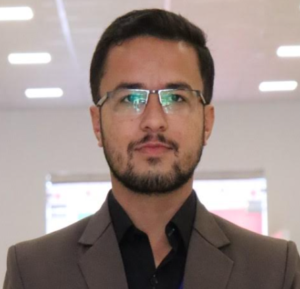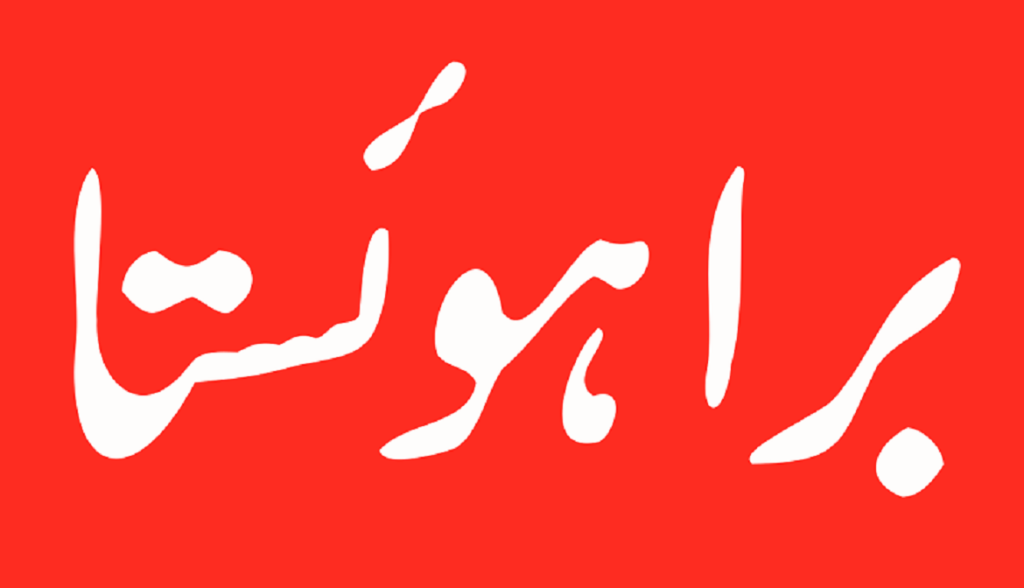By Asadullah Raisani
It is estimated that some four million people in Pakistan speak Brahui and half of them speak it as their first language.

This number is double the number of people who speak Persian (1 million) in the country. While virtually there are no Arabic speakers at all in Pakistan. Still, Persian and Arabic are part of optional subjects in exams of the Central Superior Services (CSS) in Pakistan while Brahui is not. The 2009 UN Educational, Scientific and Cultural Organization (UNESCO) Report declared Brahui as one of the 27 languages of the country that are facing the danger of extinction. Therefore, this piece emphasizes that there is a need to realize that a historically rich language of the region that dates back thousands of years is in danger of extinction, and its inclusion in certain curricula and the CSS syllabus can be an important step to keep the language alive.
According to a paper, “Impact of Globalization on Brahui Language,” Brahui is one of the oldest languages of the sub-continent region. The paper has been written by an MPhil Scholar, an Associate Professor of the Brahui Department, University of Balochistan, and an Assistant Director of the Balochistan Research and Development Center. As per the authors, people who speak Brahui live in Balochistan and Sindh in Pakistan, Iran, Afghanistan, and even Turkmenistan. They state that research backs the claim that the Brahui language is of Dravidian origin and it has been spoken in the Indian Sub-Continent and Sri Lanka since the Mehrgarh Civilization (7000 BCE). It is a language that is some 4500 to 9000 years old. The paper argues that “the rapid process of globalization seems to have invaded this language.” As, certain words and names of boys, girls, days, relationships, terminologies, and names of food items are replaced by the languages that are dominant in electronic and print media.
The UNESCO`s Project “Atlas of the World’s Languages in Danger” rightly answers the question, “Why preserve language diversity?” stating, “Languages are vehicles of our cultures, collective memories and values. They are an essential component of our identities, and a building block of our diversity and living heritage.” Globalization with many of its advantages has certain disadvantages, particularly for developing countries such as Pakistan. Mother tongues, local cultures, and the traditional social structure of relations are under threat in these nations due to rapid globalization. The process of globalization is more about adopting Western ideas and Western living styles and poses a threat to the local cultures and basic tools of the cultures like the language(s) of these cultures. Of course, the process of evolution should be respected but the devaluation of the local languages is not a price worth paying.
It is appreciable that there are daily, weekly, monthly, fortnightly, and quarterly magazines and journals in the Brahui language in the country. Tribal leaders such as Haji Lashkari Raisani assuring support to Brahui writers, intellectuals, and researchers is also encouraging. The programs broadcasted for a few hours on PTV Bolan, and the news coverage provided by Rabita Forum International (RFI) Digital on YouTube in Brahui are praiseworthy. However, these efforts are not proven enough. The English language has overtaken many languages in the world on account of its wider vitality and scope. Brahui is only one of them.
A majority of the Brahui speakers speak their mother tongue only at home. They neither can read nor write in Brahui. Most of them are completely unaware of Brahui literature. Due credit should be given to the Balochistan Public Service Commission for including a compulsory subject of ‘General Paper including Essay in Urdu / Balochi / Pashto / Sindhi / Punjabi and Brahui’ in its Provincial Civil Service (PCS) Exams syllabus. It to some degree increases the vitality and scope of the language. Though the number of PCS aspirants is roughly estimated to be a few thousand, which is not a good number either to maintain a good scope of the language. The inclusion of French, Sanskrit, Latin, and German in the optional subjects of PCS is beyond one`s understanding, which is obviously a different topic.
Unlike the PCS, the Brahui language is not included in the syllabus of the country’s CSS Exams. This undermines its importance and limits its scope. Brahui-speaking CSS aspirants often compellingly pick an alternative available language or subject from the syllabus and usually fail in that. Even those who pass the alternative subject, will hardly ever know the utilization and scope of that subject because they picked that subject out of compulsion and studied it for passing sake and nothing else. Their overall aggregates also get disturbed, and they face difficulties in allocation.
Therefore, it is suggested that with other efforts the Brahui language should be included in the optional subjects in Group – VII of the CSS Exams syllabus to make an important effort to increase the scope of the historical language to save it from perishing. Such inclusion will allow individuals who are proficient in Brahui to have an equal opportunity to participate in CSS Exams, contributing to a more representative and inclusive civil service. Through the inclusion the government will send a positive message that it values and promotes local languages. This can strengthen governance at the grassroots level by enabling civil servants to communicate effectively in the languages of the region they serve.
It is also important for maintaining the cultural heritage of the Balochistan region. Such inclusion can also be seen as a gesture of cultural sensitivity and respect towards minority languages. The inclusion of Brahui in CSS Exams can encourage the recognition of more languages and cultures, ultimately promoting greater unity and diversity in Pakistan. For instance, Siraiki is another language that deserves to be in the optional language subjects of the CSS Exams as it is spoken by over 30 million people in Pakistan.
Brahui should also be included in the School Textbooks of the areas where the number of Brahui speakers is in the majority. These children should at least know how to read and write in Brahui and get familiar with the literature of the language along with other subjects. The representatives of Balochistan sitting in the Senate, National and Provincial Assemblies should also make efforts to preserve this archival language. They should support the intellectuals, writers, and researchers of the language. They should establish more Brahui Academies where needed to promote the language, its history, and literature. Even local languages like Brahui should be included as an optional subject in BS programs in Balochistan. Every BS student should at least opt for one of these languages in any of the eight semesters. As Pakistan is a multi-ethnic and multi-lingual country, since beauty lies in diversity, Pakistan should save a prominent jewel of its beauty from getting lost.
Author: Asadullah Raisani – Research Fellow Balochistan Think Tank Network, Quetta.
(The opinions expressed in this article are solely those of the author and do not reflect the views of World Geostrategic Insights).







